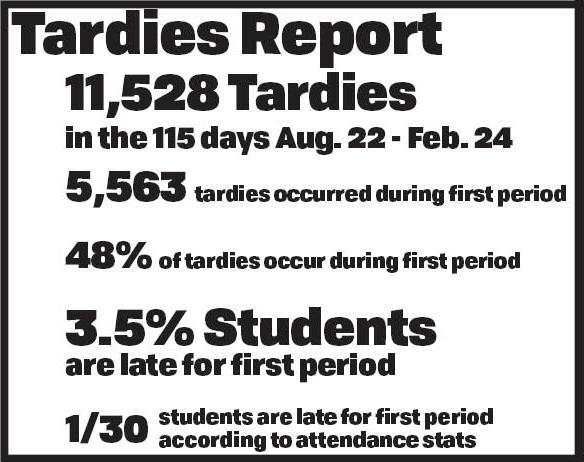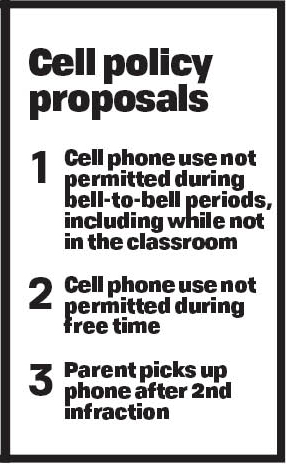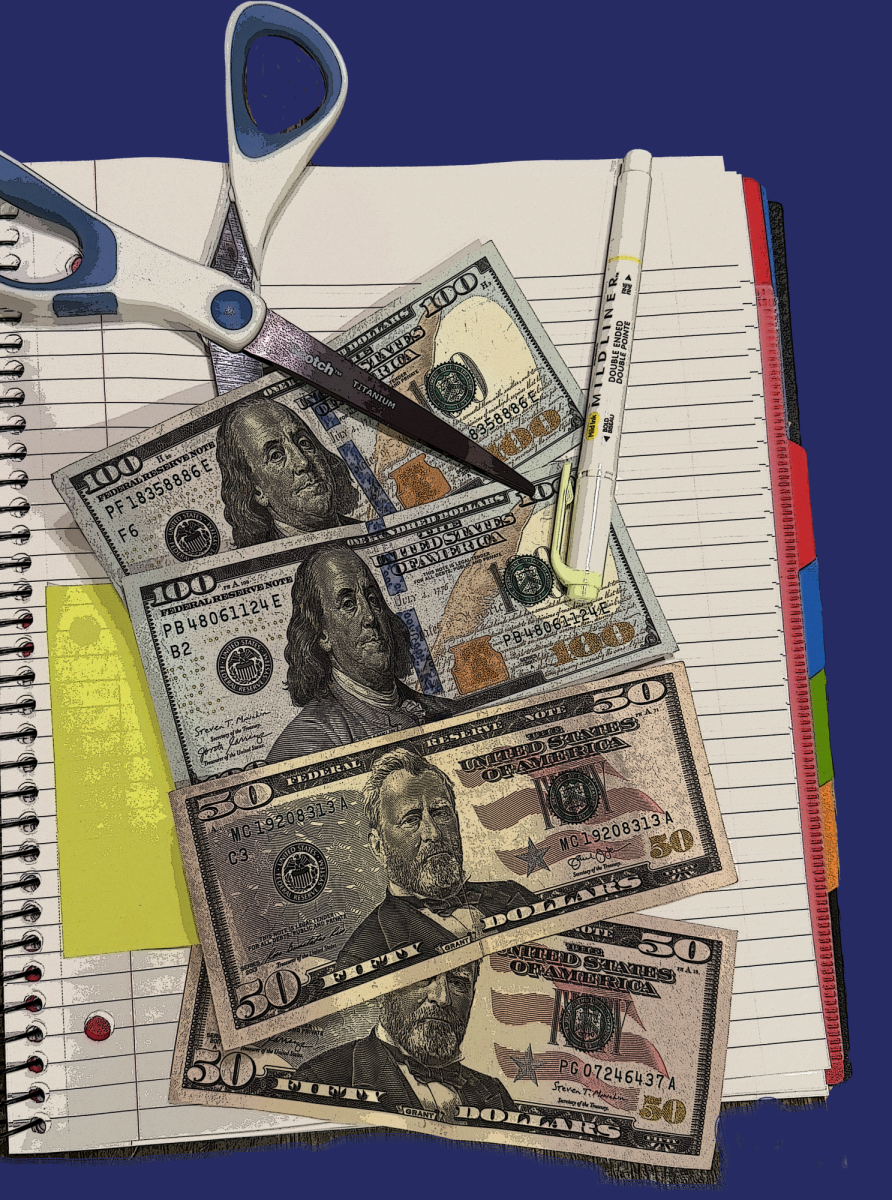PRHS staff evaluate the frequency of tardies
Teachers met on a Mar. 15 staff development day to discuss consistent, enforceable tardy and cell phone policies. Stricter disciplinary action is certain to follow.
“We need to review, revise, and enforce a policy consistently in order to reduce tardies at PRHS,” said sophomore Honors English teacher Natalee Johnson.
 Tardies are the first order of business among admin and teachers.
Tardies are the first order of business among admin and teachers.
“Arriving on time is critical to success in all areas of life; the consequences of being late are obvious to Bearcats who have entered the workforce. Employees who are late to work will not be employed long,” said PRHS Vice Principal Dan Sharon.

Attendance Office records show that 3.5 percent of students are tardy to first period–leading to over 11,000 tardy incidents since August–and 82 percent of teachers see student punctuality as a problem, according to an informal survey of 11 PRHS teachers.
Over 90 percent of teachers said that the current tardy policy is neither effective nor properly enforced.
Tardies appear to be worse than attendance data suggests. Fifty percent of PRHS teachers surveyed said they did not report tardies 100 percent of the time, meaning that attendance data is likely an underestimate.
“Many teachers do not report tardies, because there are no consequences,” said Honors Modern World History and Government teacher Mark Bradford. “The problem is worse than the attendance office statistics.”

A lack of reporting of tardies teaches students that promptness is not important, according to a paper on chronic tardiness by the National Middle School Association.
While 100 percent of surveyed teachers said punctuality was important, only 18 percent said they felt students shared their opinions.
Still, only a relative few number of students are consistently late. Forty percent of tardies are caused by merely 18 percent of PRHS students, according to Sharon, who said it would be unfair not to acknowledge all the Bearcats who exemplify Bearcat “PRIDE and preparedness.”
“The vast majority of students arrive to class on time…The challenge is helping the small minority of students with chronic tardiness develop the same habits of success as their peers,” Sharon said.
 Cell phone policy is also certain to be clarified and enforced with renewed unity among the teaching staff, as indicated in March 15 staff discussions. Teachers agreed that cell phone use during instructional time needs to be prohibited, and that confiscations should increase for students caught using phones before the end of any class period. Specific cell phone policy updates will likely be unveiled at the start of the 2017-2018 school year.
Cell phone policy is also certain to be clarified and enforced with renewed unity among the teaching staff, as indicated in March 15 staff discussions. Teachers agreed that cell phone use during instructional time needs to be prohibited, and that confiscations should increase for students caught using phones before the end of any class period. Specific cell phone policy updates will likely be unveiled at the start of the 2017-2018 school year.







